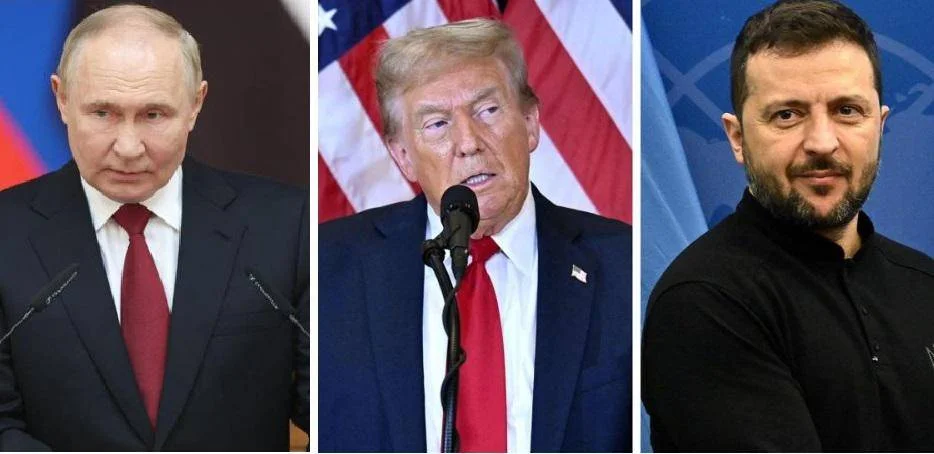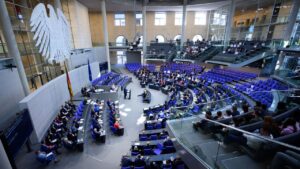
Massive Russian offensive in Ukraine, in the Zaporizhzhia regionwhere 771 attacks were launched against 21 settlements within 24 hours. Although there appeared to be a breakthrough in peace talks, the new attacks left 19 people injured. Ivan Fedorov, head of the Zaporizhzhia Regional Military Administration, provided the data via Telegram, as reported by Ukrinform.
According to his statement, Russian units launched 21 airstrikes in Novoiakovlivka, Huliaipole, Orikhiv, Vozdvyzhivka and Bilohiria. A contingent of 478 drones, mostly of the FPV type, targeted Zaporizhzhia, Kushuhum, Balabyne, Yurkivka, Stepnohirsk, Stepove, Prymorske, Huliaipole, Shcherbaky, Novodanylivka, Novoandriivka, Mala Tokmachka, Charivne, Bilohiria, Zelenyi Hai, Yablukove and Zatyshshia. Eight attacks carried out with multiple rocket launchers affected the areas around Barvinivka, Huliaipole, Zatyshshia and Zelenyi Hai. Furthermore, 264 artillery attacks were recorded on Stepnohirsk, Stepove, Prymorske, Huliaipole, Shcherbaky, Novodanylivka, Novoandriivka, Mala Tokmachka, Charivne, Bilohiria, Zelenyi Hai, Yablukove and Zatyshshia. The competent authority received 78 reports regarding damage to housing units, vehicles and infrastructure.
Pokrovsk, Huliaipole and Siversk: three routes
According to the Institute for War Studies, Russian troops broke through Ukrainian defense barriers north and east of Huliaipole, creating a serious threat to the fortifications of the Zaporizhzhia region. Kiev has repositioned its forces along the Zarichne river in light of the crucial battle, after Moscow deployed 40,000 troops in the region while clashes for control of Pokrovsk continue, less than 100 kilometers to the northeast, in the Donetsk region, where Ukraine still holds sway.
But Moscow’s progress has been slow, although much slower than last year. And this was very detrimental in terms of losses, even if there were no more attacks that threw the army that was treated like cannon fodder into chaos.
Kiev agrees to peace plan, Trump is optimistic but Moscow is holding back
Meanwhile, US President Donald Trump said he was optimistic about a peace agreement aimed at ending the war in Ukraine, and underscored the flexibility and continuity of negotiations. Aboard Air Force One, he defended the US’s initial 28-point proposal to journalists, describing it as “just a draft” and not a final plan. “They each took 28 points and ended up with 22 points. A lot of them were completed, which was very profitable,” he said.
The 28-point plan has drawn criticism in Europe and Ukraine because it is seen as benefiting Russian interests. On November 23, the United States and Ukraine held consultations in Geneva on the US peace plan, which, after revision, was accepted in some important respects by the Ukrainian government.
Trump later announced that US special envoy Steve Witkoff would travel to Moscow to meet with President Vladimir Putin, while Pentagon official Daniel Driscoll would hold parallel talks with Ukraine. The Moscow meeting could take place next week, and will likely be attended by Trump’s son-in-law, Jared Kushner.
Russia’s position
However, the peace proposal, considered by Ukrainians and Europeans to be very favorable to Moscow and modified to be more acceptable to Ukraine, did not please Moscow. Russian Foreign Minister Sergei Lavrov has stated that Russia would not support any plan that deviates from the original version agreed in August in Anchorage between Trump and Putin, and called the new document incomplete and requiring clarification. However, experts say Russia may be using disinformation tactics, issuing vague statements or signing documents without truly committing to ending the war.
Ushakov: “Witkoff will come to Moscow next week”
“Preliminary agreements have been reached for the visit of the US special presidential envoy, Steve Witkoff, to Moscow next week,” Russian presidential adviser Yuri Ushakov announced to Vgtrk journalist Pavel Zarubin, adding that Witkoff will be accompanied by “a number of US government representatives involved in Ukrainian affairs”.
Zakharova: “The EU wants to block the agreement, the word ‘peace’ goes against its nature”
European media and politicians want to hinder the resolution of the conflict in Ukraine, Russian Foreign Ministry spokesperson Maria Zakharova stated on Sputnik Radio – commenting on media reports regarding US plans and statements by European Union politicians – that European countries want to “obstruct political and diplomatic agreements and manipulate the situation for their own purposes”. Zakharova added that as soon as Europeans hear the words “peace plan”, “negotiations” or “contacts”, they will be shocked, because these are arguments that go against their nature.





